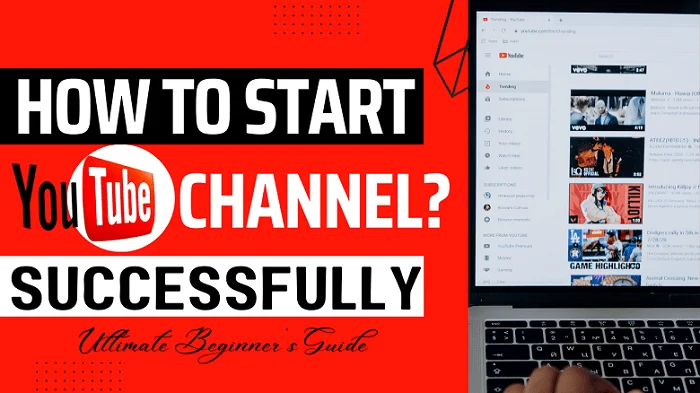A key to making your online business work well is using tools and gadgets that make things easier and better. Marketing and sales funnels are like those tools.
They help you do things more efficiently, improve what you offer, and save time and energy. Sales funnels are especially useful for new online businesses.
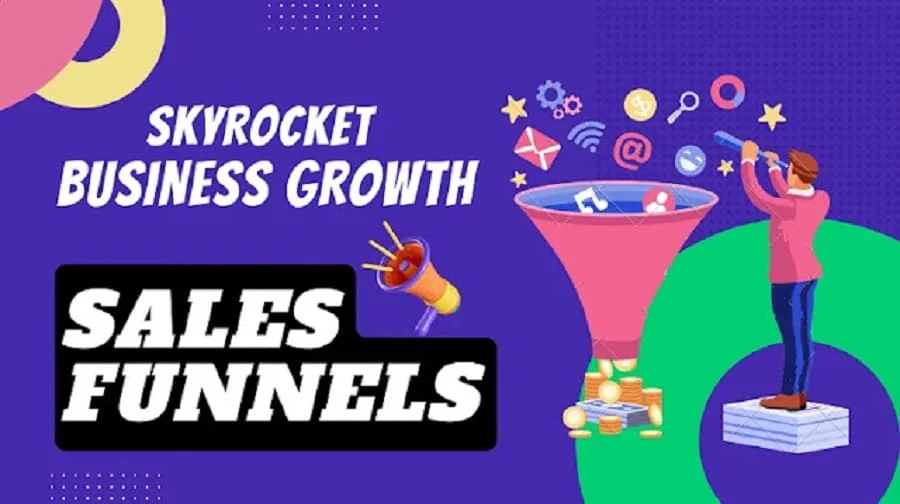
They help you tell people about your business and what you do. It’s like a clear path to get your message across to potential customers. So, if you want to succeed online, using sales funnels is a smart move to connect with the right people and grow your business.
Therefore, today we’re going to chat about sales funnels. We’ll cover what marketing and sales funnels are, the various types of sales funnels, how they do their job, and the top 4 funnels builder perfect for beginners.
It’s like an ultimate friendly guide to help you understand and use these helpful tools to make your online business successful. So, if you’re new to this, don’t worry, we’ve got you covered!
What is Marketing & Sales Funnels?
Marketing and sales funnels serve as a powerful platform for conveying detailed information about your products and services through various content forms such as text, infographics, images, and videos.
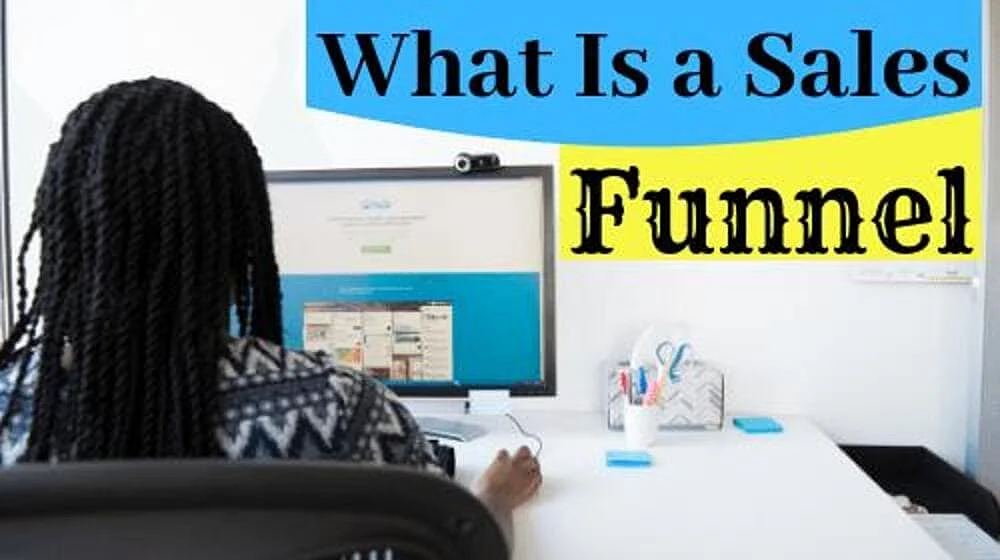
They are a vital tool in the world of online business, helping you convert potential customers into loyal buyers.
Is a Sales Funnels Necessary for Every Online Business?
Sales funnels, sometimes referred to as marketing funnels, represent the journey every customer takes from being just a potential lead to becoming an actual customer.
This journey is laden with essential information, including benefits, features, testimonials, stories, and pricing details. It caters to the inquiries of those seeking a sales funnel.
Additionally, a key feature often included in sales funnels is the landing page, designed to capture leads and email information from interested visitors, accessible via a web link or custom domain.
While landing pages are primarily used as a website’s homepage, a sales funnel transcends this, functioning as a complete website with content spread across a few pages.
Visualizing the Customer Journey
Marketing and sales funnels provide a systematic means to track the customer journey, offering a graphical representation that simplifies what can be a complex process to visualize.
They are instrumental in leading potential customers, previously unaware of your business, to become dedicated and loyal customers.
The Four Steps Formula for Customer Conversion
The customer journey within the marketing and sales funnels typically follows a four-step formula:
- Awareness: This stage identifies prospective customers and creates awareness of your products and services.
- Interest: It generates customer interest and seeks micro-commitments, drawing them closer to your offerings.
- Desire: The follow-up involves nurturing leads and developing a desire for your products.
- Action: The final step encourages customers to take action, making a purchase of your core products or services.
In essence, marketing and sales funnels are indispensable tools for online businesses, guiding potential customers through the process of discovery, interest, desire, and action, ultimately resulting in customer conversion and loyalty.
How Sales and Marketing Funnels Work?:-
Understanding sales and marketing funnels is simpler than you might think. Imagine it as a roadmap that takes your online visitors on a journey. Here’s how it works, broken down into easy steps:
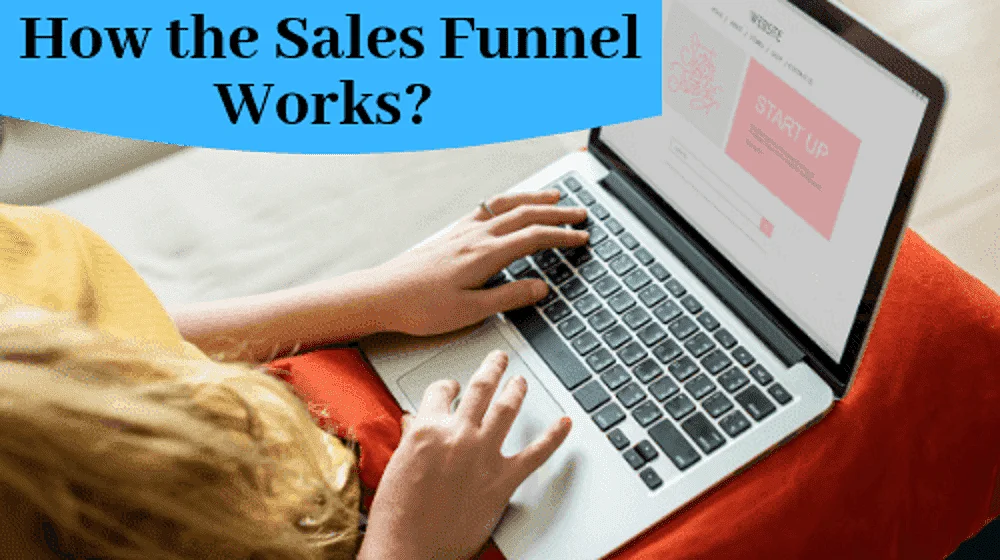
1. Capture Their Info: You start by guiding your online visitors to a “capture page,” where you collect their contact details, usually their name and email. This is like getting to know them better.
2. Use Email Magic: After you have their info, you use emails to keep in touch. These emails contain a “Call to Action,” which means they ask the visitor to do something, like check out your product. It’s like a friendly nudge.
3. Lead to a Sale: With time, these emails build a connection and trust with your visitors. Eventually, they feel comfortable enough to make a purchase and become paying customers. It’s like turning a casual friend into a lifelong buddy.
Sales Funnel’s Working Stages:
Sales and marketing funnels are like your personal marketing magicians. Once you set them up, they take care of most of the marketing for you.
You only need to do the setup once, and they’ll automatically communicate with potential customers from the moment they learn about your product to the moment they buy it.
What’s cool is that you don’t need to host live webinars or get specialized training. You can use pre-recorded videos and tools that make them seem live. This can earn you money without working all the time. Let’s dig into how it works:
Finding Potential Customers and Creating Awareness:
Start by figuring out where the people who might be interested in your product are hanging out. We call these folks “leads.” You can find them on social media or by running ads. It’s like finding the right fishing spot.
Once you know where to find them, compare the different places to see which one brings you the most potential customers. It’s like seeing which fishing spot has the most fish.
These leads are like strangers who don’t know you or your business at all; we call them “cold leads.” At this point, your job is to introduce yourself and let them know what you’re all about. It’s like saying, “Hey, I exist!” and getting their attention.
Creating Interest & Asking for Small Steps:
Now, when these leads visit your website or a special page, it’s time to get them more involved. If you’re selling something not too expensive, the small step could be buying it, like picking up a candy bar at the store.
But if you’re selling something pricier, it’s about taking the next sensible step in your relationship. This might mean sharing their contact info like their name, email, or phone number, or agreeing to chat more. It’s like getting to know someone better.
At this point, these leads aren’t strangers anymore; they’re more like friendly acquaintances. You won’t have as many of them, but that’s perfectly fine. The ones who stick around are genuinely interested in what you have to offer. It’s like having fewer, but closer friends.
Building Desire for the Product & Taking Care of Your Leads:
Even after they’ve taken those small steps, there’s more to be done. At this point, you start a follow-up process. It’s like staying in touch with a friend you’ve just met.
You keep giving them useful info, answering their questions, and being helpful. And while you’re doing that, it’s totally okay to suggest they consider making a purchase. It’s like saying, “Hey, you might really like this.”
If you’ve been doing a great job guiding them on this journey, it makes sense to offer your main product or service. It’s like introducing your friend to something you’re sure they’ll love.
Encouraging Call to Action for Purchasing the Core Product:-
This is the exciting final step where your visitors, who have become warm and eager, are likely to buy your product or service. It’s like when your friend is really excited about trying something new.
Now is the perfect time to make your customers even happier. Keep providing value and strengthen your relationship with them. Staying in touch with your recent buyers is one of the quickest ways to show you’re a reliable business.
The first 24 to 48 hours after someone makes a purchase are crucial. It’s like the time when someone tries out a new toy – they might have questions or concerns. So, give them the right info and guidance to make them feel confident about their decision to do business with you.
The wonderful thing about sales funnels is that when you lay everything out clearly, things get active and efficient. It’s hard to hide any mistakes or try to explain away a bad marketing campaign.
Sales funnels are like powerful tools that show you the journey your customer takes in a visual way. This helps you find and fix any issues or problems, so you can create a system that turns potential leads into loyal customers and even brand advocates. It’s like building a strong, lifelong connection with your customers.
Different Types of Sales Funnels
There are several different types of sales funnels, each designed for specific purposes and stages of the customer journey. Here are some common types of sales funnels:
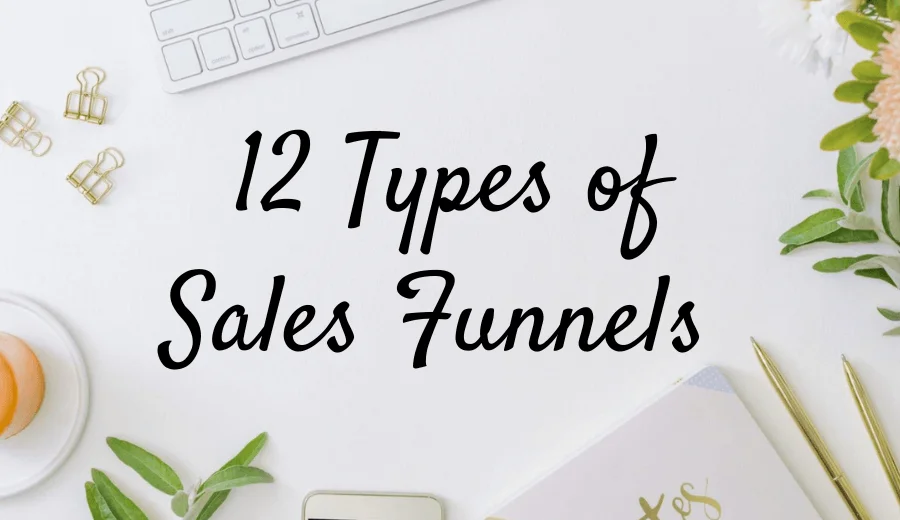
- Lead Generation Funnel:
This funnel is all about capturing potential leads and turning them into contacts. It often starts with a compelling offer, like a free e-book or webinar, in exchange for contact information. The goal is to expand your contact list for future marketing. - Sales Funnel for Products:
This is a typical sales funnel for e-commerce businesses. It guides potential customers through a series of steps, from product discovery to the final purchase. - Webinar Funnel:
Webinars are an effective way to showcase your expertise and products. This funnel focuses on getting people to sign up for your webinar, attend, and then make a purchase based on the information presented. - Membership Funnel:
For businesses offering subscription-based services, membership funnels are key. They guide potential members through a journey to sign up and become regular subscribers. - High-Ticket Funnel:
If you’re selling expensive or high-ticket items or services, this funnel is ideal. It’s designed to nurture potential customers and build trust before they make a substantial purchase. - Affiliate Marketing Funnel:
Affiliate marketers use this funnel to promote products from other companies. It guides potential customers from the affiliate’s content to the product they’re promoting, earning a commission on sales. - Launch Funnel:
This type of funnel is used for product launches. It builds anticipation and excitement among your audience before the product becomes available for purchase. - Automated Email Funnel:
Email funnels are a sequence of emails sent to a subscriber list. They can be used for lead nurturing, onboarding new customers, or re-engaging with past customers. - Event Funnel:
When you’re organizing an event, like a conference or workshop, this funnel helps you attract attendees, sell tickets, and provide event-related information. - Survey Funnel:
Survey funnels start by engaging visitors with a survey or quiz. Based on their responses, they are directed to relevant products or services. - Consultation Funnel:
For service-based businesses, like consultants or coaches, this funnel guides potential clients to book a consultation or appointment. - Downsell Funnel:
In cases where a customer doesn’t make a purchase after seeing the initial offer, a downsell funnel offers a more affordable or alternative product to keep the customer engaged.
Each of these funnels serves a unique purpose, but they all aim to guide potential customers through a series of steps, from initial awareness to conversion, based on the specific goals of your business or marketing campaign.
Importance Of A Sales Funnel Builder:-
A Sales Funnel Builder is a crucial tool for businesses in the digital age, as it plays a significant role in streamlining the process of turning leads into loyal customers. Here are the key reasons why a Sales Funnel Builder is important:

- Efficiency: Sales funnels automate much of the marketing and sales process, making it more efficient. This saves time and resources, allowing your team to focus on other essential aspects of your business.
- Consistency: Sales funnels provide a consistent and structured approach to lead conversion. It ensures that every potential customer goes through a standardized process, reducing the risk of missed opportunities.
- Customization: Sales funnel builders enable you to create tailored funnels for different products, services, or customer segments. This level of customization ensures that you meet the unique needs and preferences of various customer groups.
- Lead Nurturing: Funnel builders facilitate lead nurturing, which is critical for building trust and establishing long-term relationships with potential customers. By delivering relevant content and offers at each stage, you keep leads engaged.
- Data Analysis: Sales funnels collect valuable data at every stage of the customer journey. This data allows you to assess the performance of your funnels, identify bottlenecks, and make data-driven decisions for optimization.
- Conversion Optimization: Funnel builders enable you to continuously refine and optimize your funnels for better conversion rates. A/B testing, tracking, and analytics help you fine-tune the process.
- Scalability: As your business grows, you can scale your sales funnels to accommodate a larger audience without significantly increasing your workload. This scalability is crucial for long-term business success.
- Lead Segmentation: Funnel builders help you segment your leads based on their behavior, interests, and interactions. This allows for more personalized marketing and better-targeted offers.
- Customer Retention: Sales funnels extend beyond the initial purchase. They enable you to continue engaging with customers and encourage repeat business, turning one-time buyers into loyal, repeat customers.
- Visual Representation: Funnel builders offer a visual representation of your sales process, making it easier to understand and manage. This clarity is valuable for your team’s alignment and collaboration.
- Competitive Advantage: Using a well-structured sales funnel provides a competitive advantage. It ensures that you’re systematically capturing and converting leads, which can set you apart from competitors who rely on less organized methods.
- Adaptability: In a rapidly changing digital landscape, sales funnel builders allow you to adapt to new technologies, trends, and customer preferences. You can quickly adjust your funnels to stay relevant.
A Sales Funnel Builder is essential for modern businesses to efficiently manage leads, convert potential customers, and maintain customer relationships. It offers a structured and data-driven approach that leads to improved marketing performance and, ultimately, business success.
Best 4 Sales Funnels Builders:-
As of my last knowledge update in September 2021, several sales funnel builders have gained recognition for their features, ease of use, and versatility. Here are four of the best sales funnel builders that were popular at that time:
ClickFunnels:
ClickFunnels is a widely used and user-friendly sales funnel builder. It offers a range of pre-designed templates and a drag-and-drop editor to create landing pages and sales funnels.

ClickFunnels is like a virtual platform where small businesses and entrepreneurs can host their mini websites for selling stuff online. It’s perfect if you want an easy-to-use, ready-to-go place to showcase and sell your products.
Here’s what ClickFunnels can do for you:
One of the cool things about ClickFunnels is how speedy it is. It takes care of almost everything for you, including some ready-made funnels. You can also do neat stuff like A/B testing (that’s comparing different versions of a web page to see which one works better) and set up auto-responses (which means automatic messages).
- Build Awesome Landing Pages: You can create stunning web pages for selling and marketing your stuff. No need to be a tech whiz; it’s as simple as drag-and-drop.
- Sales Funnels: Think of these like pathways to guide potential customers to the right products. Plus, you can stay in touch with them after they buy.
- Follow-Up Messages: You can send follow-up emails and even text messages to keep customers in the loop.
- Memberships and Logins: If you want a special club or members-only section on your site, ClickFunnels can handle that.
- Easy to Get Started: It’s a breeze to set up your first marketing funnels, especially because they provide some sample ones to get you going.
And, if you want to offer things like special deals, upsells (that’s when you suggest a more expensive item), or downsells (a less expensive alternative), ClickFunnels has got your back.
There’s even a feature called “backpack” that helps you find people who want to promote your product. You can also join the ClickFunnels community and meet other folks who think like you do. They have events, too, where you can learn and share, like Funnel Hacking Live. Plus, you can clone and customize any Affiliate Funnel.
LeadPages:
LeadPages is a useful tool for digital marketing. It helps you collect email addresses from your subscribers. It provides ready-made templates for creating landing pages that are designed to work well with your target audience. You can also easily send extra content to your audience using it.
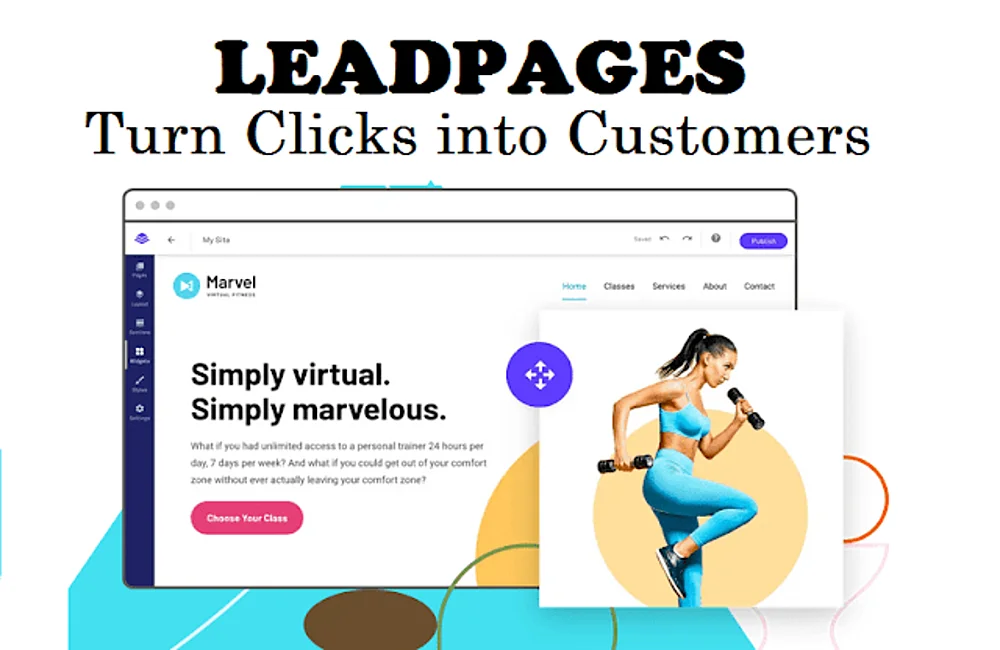
Leadpages is a handy tool, but it’s not an email sender. You can’t use it to send regular emails to people. Here are some cool things you can do with LeadPages:
- Webinars: You can host webinars, which are like online classes or events.
- Automatic Content Upgrades: You can send extra content to your subscribrs automatically when they sign up.
- Opt-In Boxes in Blog Posts: You can create those little boxes where people put in their email to get something cool.
- Landing Pages: Make special pages for selling stuff or marketing.
- Text Message Sign-Ups: Collect emails through text messages. Neat, right?
- “Thank You for Subscribing” Pages: After someone signs up, you can create special pages to say thanks.
- Free Course Videos: You can use Leadpages to host videos for free courses.
And there’s more where that came from. It’s like a toolbox for bloggers and business folks to make their online stuff even better. Just remember, it won’t help you send regular emails.
Kartra:
Kartra is kind of new to the online marketing world, but it’s pretty awesome. When you actually use it, you’ll notice how great its features are.
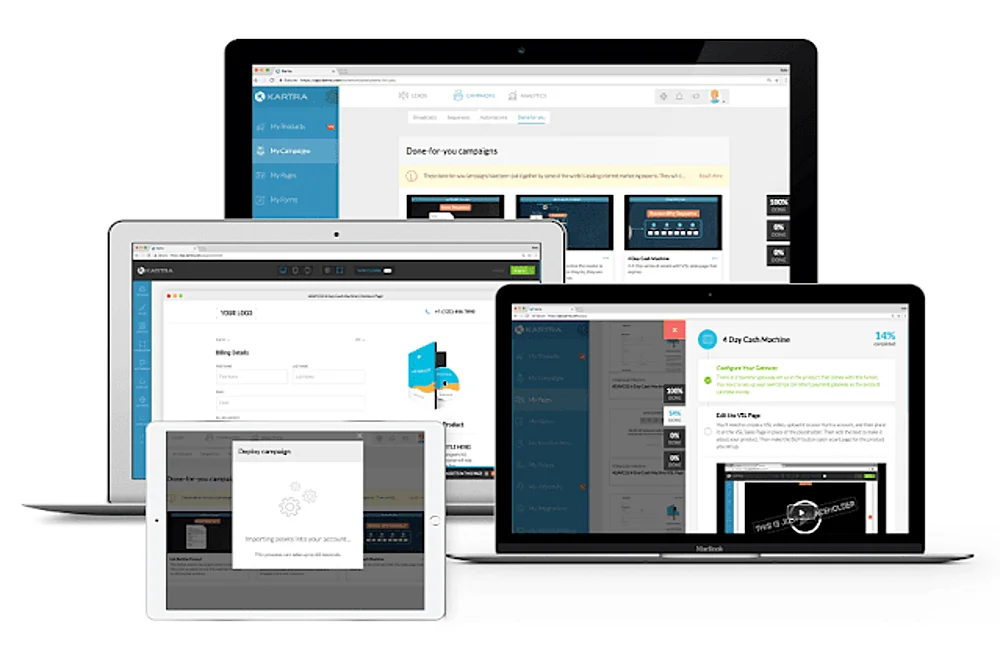
One cool thing about Kartra is that it puts everything in one place. Instead of juggling different tools for your courses, emails, memberships, and customer support, you can do it all here.
It’s like having everything in one box, which makes things a whole lot simpler. You don’t have to worry about connecting different pieces or dealing with tricky tech stuff. With Kartra, you can do a bunch of things like:
- Build Membership Sites
- Send Email Responses
- Create Online Courses
- Set up Shopping Carts
- Start Affiliate Programs
- Make a Marketplace
And here’s why I really like Kartra: it’s all about achieving your goals. Every time you create something in Kartra, it guides you through the important steps to get more leads and sales. It pushes you to think about the final step in reaching your goal. It’s like having a helpful coach along the way.
GetResponse Sales Funnel Builder:
GetResponse’s Sales Funnel Builder is a powerful tool that helps businesses create and optimize their sales funnels for maximum conversions. With the latest features, it offers a comprehensive solution for digital marketing:
Here are some advance features you will find in GetResponse Sales Funnel Builder:
- Simplified Sales Funnel Creation: GetResponse’s tool simplifies the process of building effective sales funnels.
- Customizable Templates: It provides a range of customizable templates for landing pages, opt-in forms, and sales pages.
- Drag-and-Drop Functionality: Users can easily design their funnel components with a user-friendly drag-and-drop editor.
- Visual Editor: The tool includes a visual editor for creating and fine-tuning the design of your funnel pages.
- Email Marketing Automation: You can automate email marketing sequences to engage and nurture leads.
- Advanced Segmentation: Utilize advanced segmentation to target specific audience segments with tailored content.
- E-commerce Integrations: The latest features offer seamless e-commerce integrations for product sales and order processing.
- Effortless Marketing: GetResponse’s Sales Funnel Builder helps streamline marketing efforts, effectively engage leads, and ultimately boost sales.
Conclusion
In Conclusion, it’s evident that sales funnels play a crucial role in modern digital marketing. They streamline the process of turning potential customers into loyal clients, making the journey from awareness to conversion more efficient and effective.
Sales funnel builders, like those offered by platforms such as ClickFunnels, Leadpages, Kartra, and GetResponse, provide essential tools and features to create, customize, and optimize these funnels.
The key benefits include increased efficiency, scalability, customer retention, and the ability to track and analyze the customer journey. In today’s digital landscape, a well-structured sales funnel is a fundamental component of successful online marketing strategies.
I hope you found this post “Sales Funnels:- A Comprehensive Guide to Business Automation” helpful and learned a lot about sales funnels. If you think it’s useful, please share it with your friends so they can easily access this valuable information.
If you have any questions or suggestions, feel free to leave a comment. I’d love to hear from you. Thanks for reading, and have a great day


